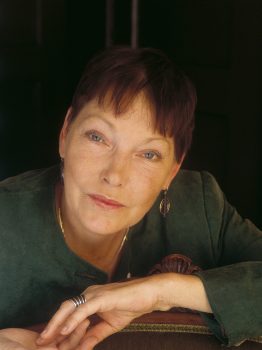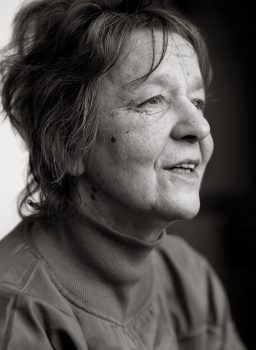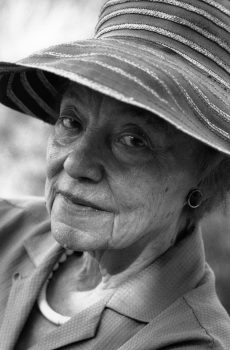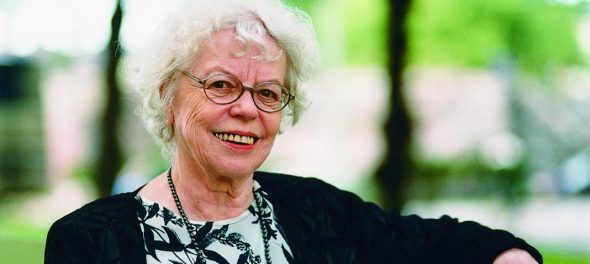Tag: classics
The lake
Issue 2/1988 | Archives online, Fiction, Prose
Järvi (‘The lake’), a short story, 1915. Introductions by Kai Laitinen and Pekka Tarkka
I travel the world, not out of any desire for adventure, but because that is the way things have happened. The best of my wanderings are in obscure, tucked-away regions, where life is humdrum and pitched in a low key. There I have no need to stave off nostalgia for the past by leading a hectic life: my days go by in stolid succession from season to season, I am an ordinary unimportant individual among all the rest. For long stretches of time my life does not strike me as being either dull or bright; I derive a certain satisfaction from its very emptiness. It is as though I were, by degrees and to the best of my ability, paying off a kind of debt. More…
A respectable tragedy
Issue 2/1988 | Archives online, Fiction, Prose
An extract from the novel Säädyllinen murhenäytelmä (‘A respectable tragedy’, 1941). Introduction by Kaija Valkonen. The central theme of the novel is love: young, old, passionate, innocent, proper, improper. The main characters are a middle-aged couple, the doctor and his wife Elisabet, his sister Naimi and the love of her youth, Artur. Hämäläinen’s fine irony, careful and thoughtful psychology and colourful language have made the novel a bestseller. Naimi, an aesthete and an uncompromising character, has left her husband Artur twenty years ago because of his infidelity. But slowly she begins to forgive: this tragic but compassionately told love story, not without tragicomedy and humour, ends in reconciliation
Embalmed passion
In that new Helsinki of the ‘thirties, which had opened like a garden flower, gaily coloured, sunlit, practical and impractical, in love with every novelty of the moment, which it thought astonishing, lived Naimi Saarinen, back from her exile, where she had been driven by wounded passion twenty years before. More…
In my memory
Issue 4/1987 | Archives online, Fiction, poetry
Poems and aphorisms from four collections. Introduction by Erkka Lehtola
Let the healing epidemics out! There must be some.
The many-headed monster, the market ideology, it can simultaneously read, count and even write at least 666 works. And without the sign of the beast no one can buy or sell.
Those who can read know you only realise you’ve forgotten how
when you can do it again.
What a handsome winter we have here! If it weren’t so dark, we’d see it. We could orientate ourselves on the stars with the beam from a pocket torch. Somewhere in mid-sky, I’d say, they come flying along on long lights.
As a child I said I’ll do what I want. Now I want what I do.
Who’s in the middle when the two sides of your face are side by side, as they are, in the mirror.
The trees that hide the sun are bright inside.
A frosty night when you feel the stars on your skin and discuss what you’re wearing.
Somebody’s walking over there, with an umbrella over his head, taking the rain for a walk.
I’m so delighted to find so much that’s useless.
What a relief there’s no longer enough time to get acquainted.
From Tuoreessa muistissa kevät (‘Springtime fresh in the memory’), 1987 More…
A small lie
Issue 2/1987 | Archives online, Fiction, Prose
A short story from Pieni valhe (‘A small lie’). Introduction by Marianne Bargum
The white cat had started to hate her.
Only half a year ago, Marja remembered, it had been playing with the hems of her robe, while she had passed the morning reading and drinking coffee. Right now it was staring relentlessly at her from the bookcase where it was ensconced: out of reach, she thought. Its stare was green and mean. At night it attacked her ankles; it lurked in the crevices of the apartment and when it heard her approaching steps it leapt past her, screaming, and crossed the room to the curtains or the table. The curtains fell, books crashed to the floor, the cat stared with its eyes opened wide, the pupils like narrow slits. She would lock the cat into the other room for the night, hear it mew and feel the door with its paws; she fell asleep only after the cat had calmed down. When she approached it during the day, stroked it and called its name, it looked at her, motionless, as if it had seen and known everything, and then she withdrew her hand, backed off, started behaving as if there wasn’t even a cat in the apartment. More…
Poems, poèmes
Issue 2/1987 | Archives online, Fiction, poetry
Poems from Mies joka rakasti vaimoaan liikaa (‘The man who loved his wife too much’, 1979 and Vaikka on kesä (‘Although it’s summer’, 1983). Interview by Markku Huotari
Look at this epitaph with whiskers.
Threw herself so gladly into my troubles, sometimes she seemed to be bearing, properly, my burdens.
A dog called Julia. Combining
July and Yuletide.
Often thought of putting her down, so she wouldn’t need to die.
Smash her skull or break her neck
with my own hands, to stop her mourning her premature death.
Which still seems to be delaying.
She puts her four paws gently down, one at a time. So the Lord won’t hear her still about
and whisk her away.
Two years ago, she steps on some glass, her toe sticks out, a tendon’s cut.
She looks at me. Believe it or not,
I’m grieved by little Julia’s lot: for a second
I think the blood’s dripping from my own heart. More…
Poems
Issue 2/1987 | Archives online, Fiction, poetry
Poems from Vattenhjulet (‘The water-wheel’, 1986). Introduction by Thomas Warburton
Together with time
One day the door to my room closed
and fate said to me: be still.
It was then that I discovered time.
It had lain hidden beneath a lid
of events and hasty decisions.
It was then that I raised the lid.
So strange! There time lay
completely unused, completely itself
smooth and fresh, as if resting.
I looked at time with reverence.
I saw myself new, I sank into
a miraculous eventlessness
together with time
listened to myself living:
a barely perceptible murmur.
The water-wheel
The old horse plods heavily with blinkered eyes the wheel turns slowly and inexorably creating time, a thing that is not visible that is really nothing with the right to kill.
Poems
Issue 4/1986 | Archives online, Fiction, poetry
Introduction by Kai Laitinen
Evening Mood
It’s widening:
an evening like a sigh –
languidly spreading across the land.
The tree’s unclothing
its branches of their colours, darkening.
As if something somewhere
were ringing and ringing –
a song straying like an orphan.
The words seem
something I’ve heard:
‘only a shadow –
only a shadow of a dream’
It’s slipping away. It’s dwindling.
Everything – everything – I’ve been given
I’ll give away. More…




